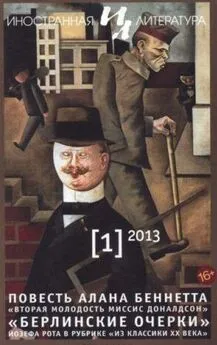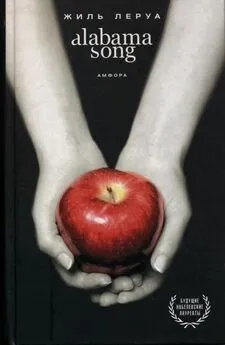Toni Morrison - Song of Solomon
- Название:Song of Solomon
- Автор:
- Жанр:
- Издательство:неизвестно
- Год:неизвестен
- ISBN:нет данных
- Рейтинг:
- Избранное:Добавить в избранное
-
Отзывы:
-
Ваша оценка:
Toni Morrison - Song of Solomon краткое содержание
Song of Solomon - читать онлайн бесплатно полную версию (весь текст целиком)
Интервал:
Закладка:
A month later she returned with a sack, the contents of which she never discussed, which she added to her geography book and the rocks and the two spools of thread.
When Reba was two years old, Pilate was seized with restlessness. It was as if her geography book had marked her to roam the country, planting her feet in each pink, yellow, blue or green state. She left the island and began the wandering life that she kept up for the next twenty-some-odd years, and stopped only after Reba had a baby. No place was like the island ever again. Having had one long relationship with a man, she sought another, but no man was like that island man ever again either.
After a while, she stopped worrying about her stomach, and stopped trying to hide it. It occurred to her that although men fucked armless women, one-legged women, hunchbacks and blind women, drunken women, razor-toting women, midgets, small children, convicts, boys, sheep, dogs, goats, liver, each other, and even certain species of plants, they were terrified of fucking her—a woman with no navel. They froze at the sight of that belly that looked like a back; became limp even, or cold, if she happened to undress completely and walked straight toward them, showing them, deliberately, a stomach as blind as a knee.
“What are you? Some kinda mer maid?” one man had shouted, and reached hurriedly for his socks.
It isolated her. Already without family, she was further isolated from her people, for, except for the relative bliss on the island, every other resource was denied her: partnership in marriage, confessional friendship, and communal religion. Men frowned, women whispered and shoved their children behind them. Even a traveling side show would have rejected her, since her freak quality lacked that important ingredient—the grotesque. There was really nothing to see. Her defect, frightening and exotic as it was, was also a theatrical failure. It needed intimacy, gossip, and the time it took for curiosity to become drama.
Finally Pilate began to take offense. Although she was hampered by huge ignorances, but not in any way unintelligent, when she realized what her situation in the world was and would probably always be she threw away every assumption she had learned and began at zero. First off, she cut her hair. That was one thing she didn’t want to have to think about anymore. Then she tackled the problem of trying to decide how she wanted to live and what was valuable to her. When am I happy and when am I sad and what is the difference? What do I need to know to stay alive? What is true in the world? Her mind traveled crooked streets and aimless goat paths, arriving sometimes at profundity, other times at the revelations of a three-year-old. Throughout this fresh, if common, pursuit of knowledge, one conviction crowned her efforts: since death held no terrors for her (she spoke often to the dead), she knew there was nothing to fear. That plus her alien’s compassion for troubled people ripened her and—the consequence of the knowledge she had made up or acquired—kept her just barely within the boundaries of the elaborately socialized world of black people. Her dress might be outrageous to them, but her respect for other people’s privacy—which they were all very intense about—was balancing. She stared at people, and in those days looking straight into another person’s eyes was considered among black people the height of rudeness, an act acceptable only with and among children and certain kinds of outlaws—but she never made an impolite observation. And true to the palm oil that flowed in her veins, she never had a visitor to whom she did not offer food before one word of conversation—business or social—began. She laughed but never smiled and in 1963, when she was sixty-eight years old, she had not shed a tear since Circe had brought her cherry jam for breakfast.
She gave up, apparently, all interest in table manners or hygiene, but acquired a deep concern for and about human relationships. Those twelve years in Montour County, where she had been treated gently by a father and a brother, and where she herself was in a position to help farm animals under her care, had taught her a preferable kind of behavior. Preferable to that of the men who called her mermaid and the women who swept up her footprints or put mirrors on her door.
She was a natural healer, and among quarreling drunks and fighting women she could hold her own, and sometimes mediated a peace that lasted a good bit longer than it should have because it was administered by someone not like them. But most important, she paid close attention to her mentor—the father who appeared before her sometimes and told her things. After Reba was born, he no longer came to Pilate dressed as he had been on the woods’ edge and in the cave, when she and Macon had left Circe’s house. Then he had worn the coveralls and heavy shoes he was shot in. Now he came in a white shirt, a blue collar, and a brown peaked cap. He wore no shoes (they were tied together and slung over his shoulder), probably because his feet hurt, since he rubbed his toes a lot as he sat near her bed or on the porch, or rested against the side of the still. Along with winemaking, cooking whiskey became the way Pilate began to make her steady living. That skill allowed her more freedom hour by hour and day by day than any other work a woman of no means whatsoever and no inclination to make love for money could choose. Once settled in as a small-time bootlegger in the colored section of a town, she had only occasional police or sheriff problems, for she allowed none of the activities that often accompanied wine houses—women, gambling—and she more often than not refused to let her customers drink what they bought from her on the premises. She made and sold liquor. Period.
After Reba grew up and began to live from one orgasm to another, taking time out to produce one child, Hagar, Pilate thought it might be time for a change. Not because of Reba, who was quite content with the life her mother and she lived, but because of her granddaughter. Hagar was prissy. She hated, even as a two-year-old, dirt and disorganization. At three she was already vain and beginning to be proud. She liked pretty clothes. Astonished as Pilate and Reba were by her wishes, they enjoyed trying to fulfill them. They spoiled her, and she, as a favor to their indulgence, hid as best she could the fact that they embarrassed her.
Pilate decided to find her brother, if he was still alive, for the child, Hagar, needed family, people, a life very different from what she and Reba could offer, and if she remembered anything about Macon, he would be different. Prosperous, conventional, more like the things and people Hagar seemed to admire. In addition, Pilate wanted to make peace between them. She asked her father where he was, but he just rubbed his feet and shook his head. So for the first time, Pilate went voluntarily to the police, who sent her to the Red Cross, who sent her to the Salvation Army, who sent her to the Society of Friends, who sent her back to the Salvation Army, who wrote to their command posts in large cities from New York to St. Louis and from Detroit to Louisiana and asked them to look in the telephone directory, where in fact one captain’s secretary found him listed. Pilate was surprised that they were successful, but the captain was not, because there could hardly be many people with such a name.
They made the trip in style (one train and two buses), for Pilate had a lot of money; the crash of 1929 had produced so many buyers of cheap home brew she didn’t even need the collection the Salvation Army took up for her. She arrived with suitcases, a green sack, a full-grown daughter, and a granddaughter, and found her brother truculent, inhospitable, embarrassed, and unforgiving. Pilate would have moved on immediately except for her brother’s wife, who was dying of lovelessness then, and seemed to be dying of it now as she sat at the table across from her sister-in-law listening to her life story, which Pilate was making deliberately long to keep Ruth’s mind off Hagar.
Chapter 6
“I took her home. She was standing in the middle of the room when I got there. So I just took her home. Pitiful. Really pitiful.”
Milkman shrugged. He didn’t want to talk about Hagar, but it was a way to sit Guitar down and get around to asking him something else.
“What’d you do to her?” asked Guitar.
“What’d I do to her? You saw her with a butcher knife and you ask me that?”
“I mean before. That’s a messed-up lady.”
“I did what you do to some woman every six months–called the whole thing off.”
“I don’t believe you.”
“It’s the truth.”
“No. It had to be something more.”
“You calling me a liar?”
“Take it any way you want. But that girl’s hurt—and the hurt came from you.”
“What’s the matter with you? You’ve been watching her try to kill me for months and I never laid a hand on her. Now you sit there worried about her. All of a sudden you’re police. You’ve been wearing a halo a lot lately. You got a white robe too?”
“What’s that supposed to mean?”
“It means I’m tired of being criticized by you. I know we don’t see eye to eye on a lot of things. I know you think I’m lazy—not serious, you say—but if we’re friends…I don’t meddle you, do I?”
“No. Not at all.”
Several minutes passed while Milkman played with his beer and Guitar sipped tea. They were sitting in Mary’s Place on a Sunday afternoon a few days after Hagar’s latest attempt on his life.
“You’re not smoking?” asked Milkman.
“No. I quit. Feel a hell of a lot better too.” There was another pause before Guitar continued. “You ought to stop yourself.”
Milkman nodded. “Yeah. If I stay around you I will. I’ll stop smoking, fucking, drinking–everything. I’ll take up a secret life and hanging out with Empire State.”
Guitar frowned. “Now who’s meddling?”
Milkman sighed and looked straight at his friend. “I am. I want to know why you were running around with Empire State last Christmas.”
“He was in trouble. I helped him.”
“That’s all?”
“What else?”
“I don’t know what else. But I know there is something else. Now, if it’s something I can’t know, okay, say so. But something’s going on with you. And I’d like to know what it is.”
Guitar didn’t answer.
“We’ve been friends a long time, Guitar. There’s nothing you don’t know about me. I can tell you anything—whatever our differences, I know I can trust you. But for some time now it’s been a one-way street. You know what I mean? I talk to you, but you don’t talk to me. You don’t think I can be trusted?”
“I don’t know if you can or not.”
“Try me.”
“I can’t. Other people are involved.”
“Then don’t tell me about other people; tell me about you.”
Guitar looked at him for a long time. Maybe, he thought. Maybe I can trust you. Maybe not, but I’ll risk it anyway because one day…
“Okay,” he said aloud, “but you have to know that what I tell you can’t go any further. And if it does, you’ll be dropping a rope around my neck. Now do you still want to know it?”
“Yeah.”
“You sure?”
“I’m sure.”
Guitar poured some more hot water over his tea. He looked into his cup for a minute while the leaves settled slowly to the bottom. “I suppose you know that white people from time to time, and most folks shake their heads and say, ’Eh, eh, eh, ain’t that a shame?’”
Milkman raised his eyebrows. He thought Guitar was going to let him in on some deal he had going. But he was slipping into his race bag. He was speaking slowly, as though each word had to count, and as though he were listening carefully to his own words. “I can’t suck my teeth or say ‘Eh, eh, eh.’ I had to do something. And the only thing left to do is balance it; keep things on an even keel. Any man, any woman, or any child is good for five to seven generations of heirs before they’re bred out. So every death is the death of five to seven generations. You can’t stop them from killing us, from trying to get rid of us. And each time they succeed, they get rid of five to seven generations. I help keep the numbers the same.
Читать дальшеИнтервал:
Закладка:








